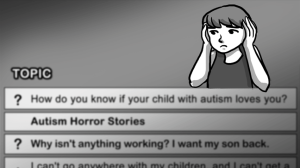
Source: Getty Images
Growing up, I wasn’t necessarily told that quitting in any kind of circumstance wasn’t a good idea, but it was certainly intuited.
And if I didn’t quit and got through whatever the uphill battle was, there was a smile, maybe even an “I’m-so-proud-of-you-for-sticking-it-out” pat on the back.
Because if you start something, you should finish it. Nobody wants to be (nor likes or respects) a quitter. It’s a concept ingrained into the fabric of our social being.
But what if I start studying science, thinking I want to be a doctor, and then realize I’d be much happier working on an organic farm? Or what if my work environment is making me irritable, anxious, and overall unhealthy, is it “wrong” to quit then?
In these contexts, I’d actually say that quitting is the best option. Yet, for many, it’s hard to shake the mentality that rather than feeling like leaving in order to pursue a want or dream, they’re leaving because they are incapable of following through.
Sometimes, quitting should be something that empowers us. But for many it instead depletes us, making us feel worse about ourselves just because we’ve internalized the idea that quitting is always negative.
I’ve experienced it plenty of times, and over the last few weeks, I’ve noticed, so have my friends. So I got to thinking: Is there a way we can shift our perception of quitting, seeing it less as a signifier of being not good enough and more as a confirmation of awesomeness?
Because quitting doesn’t have to mean that you’re a quitter. Quitting can mean a lot of different things. And maybe we should focus a little bit more on the positive side of quitting.
You Are Worthy of More
Sitting at your desk, maybe you’ve visualized working outside or maybe you want to create your own schedule.
By quitting that situation, you’re saying that you deserve to go after what’s in your imagination, to continue to see through the eyes of a child where everything felt like opportunity.
What you’re saying to yourself is that you deserve more than this. By quitting, you’re being true to your desire to do more and be more.
Willing to Stand Up for What You Want in Life
Sometimes it may feel like everything is happening to you.
The boss asked you to stay late the third time this week, or you’ve been put upon again to take on another project. You’re saying yes when you want to say no, and it’s all this person or that person’s fault.
By quitting this situation, what you’re saying is that you are willing to stand up for what you want in life.
It’s less about sitting around watching things happen to you and more like taking the bull by the horn and making it happen for yourself.
You’re taking responsibility for yourself and your life, not letting others dictate your happiness.
Confidence in Ability to Do More
The less productive you are, the more likely it is that you’re not happy with what you’re doing. The more productive you are, the more interested you may be in your day-to-day tasks.
If you are interested in a subject, you engage more, and as such, you end up taking on more out of interest rather than obligation.
Quitting in this scenario gives you the opportunity to do more in a setting where you’re able to thrive.
By quitting, you can find the right place for you to fulfill your desires and needs.
Self-Esteem
As you can see, self-esteem plays a big role in quitting. Of course it does. Because it’s all about how we see ourselves.
If I don’t think I’m capable, then I’m likely to stay in the position I’m in and not ask for a promotion or quit when it’s time.
On the other hand, if I think I deserve to be valued for my work, and that I’m an asset to the company, then there’s no question that I’ll be fighting for benefits or a change in treatment.
Quitting something is empowering because what you’re saying is “I deserve more than this; I want more than this.”
It’s Not That Easy
Most of us though don’t think about quitting like that, though While most people would say that if you hate your job so much, you should just quit, the response given is usually along the lines of “It’s not that easy.”
It’s not that easy because you have to pay bills, you have kids, or you’re in the middle of a project and don’t want to leave it for someone else.
It’s not that easy because you’ve been there for x amount of years, or you don’t know what you want to do, or you’d have to find another job.
And yes. Absolutely. All of these factors exist. But are they more important than your mental and physical health?
What if you thought of yourself before your work or responsibilities? What would that look like?
”That would be great,” you’re thinking, “but that’s just not reality.”
And maybe it’s not now, but it could be.
If little by little, you start making strides in the direction of self-preservation, then sooner than later, your work environment could animate and inspire.
If we make it a priority to take care of ourselves, then our day-to-day doings will fall in line with that intention.
Moving Forward Fearlessly
1. Reason for not quitting: I need to make money; I have nothing lined up.
Action: See if you can find some time while you’re still working to look for other opportunities. Start looking at job sites to see what’s out there that may interest you. Let friends know you’re looking for openings in other places. Start small.
2. Reason for not quitting: I don’t know what I want to do if I’m not doing this.
Action: Start looking at other jobs online to see if there’s anything that calls out to you. It’s possible it may be something that you’ve never thought of or know anything about. If that’s the case then maybe you’ll want to look into taking some classes.
Think about what lights you up inside. When you’re happy during the day, what activities are you doing? If you’re looking for your purpose, then look to positions that fulfill that desire in you. Explore your feelings and emotions and what makes you tick. What were the subjects you were interested in when you were younger that you stopped doing?
Eventually, you might figure out what you’d be happiest doing.
3. Reason for not quitting: The project I’m on won’t end for another couple of months.
Action: Let me say that in another couple of months, you’ll likely be involved in another project that you won’t want to let go of. If you don’t want to leave the person in a bad state, take the necessary precautions to prepare someone else ahead of time to take over.
You Deserve Happiness
By leaving a place that no longer serves, you are taking responsibility for yourself and your happiness. You are opening doors for opportunities to present themselves.
I remember waking up and the first thing I’d do was check my e-mail. Then through brushing my teeth and taking a shower, I’d think about what I had to do during the day. By the time I reached my desk, I was already drained. Then calls started coming in, and so began one sigh after another of feeling depleted.
Maybe you’ve noticed this about yourself. Or maybe you’ve noticed it in some of your friends. But the truth is that work can be a drag if it isn’t what you want to be doing.
And no matter if it’s easy or challenging work, if your heart is not in it, then all of it feels like a burden.
Put simply, if you dread going to work or feel like it’s taking over your life and you’re unhappy or even fearful of making a mistake, then the relationship between you and your work may need an upgrade.
If you’ve tried to make the situation better and it’s not working, it may be time to cut your losses and quit.
Leaving can be the end of something, sure. But it can also be the beginning of something else.
Want to discuss this further? Login to our online forum and start a post! If you’re not already registered as a forum user, please register first here.
Cynthia Kane is a Contributing Writer at Everyday Feminism. Cynthia Kane is a Contributing Writer for Everyday Feminism. Over the last year and a half, she’s relearned the following: how to jump up and down when she’s happy, cry when she’s sad, laugh when something’s funny, take a compliment, smile at strangers, and be open to the fact that everyone is going through it all the time. For more, visit her website or follow her on Twitter @cynkane. Read her articles here.
Search our 3000+ articles!
Read our articles about:
Our online racial justice training
Used by hundreds of universities, non-profits, and businesses.
Click to learn more




















